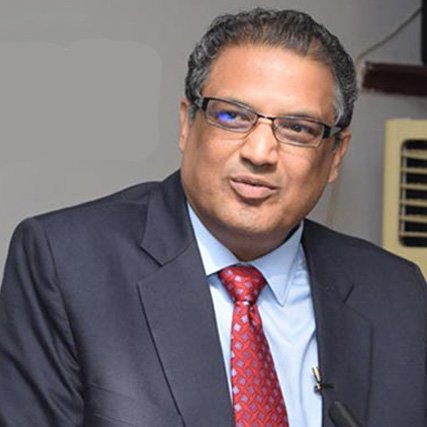After two and a half years of effort, finally, the Pakistani kite has begun to fly high in the skies.
The truth is, sometimes the kite was given a pull on the string, but it could not fully fly.
Sometimes straws were tied to it, sometimes it was flown with a simple thread, and sometimes attempts were made to fly the kite by applying glass-coated thread (manjha).
Sometimes we flew a Machhar (fighter kite), sometimes we sent a Pari (fairy kite) into flight.
Sometimes we tried a Chonch (a pointed kite), and sometimes a Sharla (another type of kite).
But at last, we tangled such a pech (kite duel) with the three-colored Indian kite, and the “Ain” (ع) turned the reel so skillfully that first the string was loosened.
The tricolor thought that the string was weak, but the green kite’s string had sharp manjha on it.
As soon as the straw was applied, the manjha string did its work the tricolor kite first wobbled, and then was cut loose.
The green kite gained such dominance that whether it was American kite-flyers or Gulf spectators, all suddenly became admirers of the high-soaring green kite the same kite that for two and a half years had been drifting weightless and unsupported.
In Punjabi language’s expression:
“Hun gudi charh gayi ae; charhi gudi phir sab nu katdi jandi ae.”
(“Now the kite has risen; once risen, it keeps cutting all others.”)
The cooperation of the Prime Minister and the Army Chief is finally leading towards successes.
For the civil and the military to move together is usually like fire and water joining but this time, both have, with patience, tolerance, and endurance, successfully tried to run this difficult hybrid system.
Whether it be the practical war with India or the continuous struggle for economic success both the army and the civilians, through tireless hard work and continuous cooperation, have achieved successes.
Shahbaz Sharif, despite not having space, is well aware of the art of creating his own space.
Apparently, he seemed to be pressed within the system, but through constant diplomacy and day-and-night “effort for dignity,” he seems to have achieved his goal.
The seemingly weak Prime Minister, though appearing to shrink beside the Saudi Crown Prince, despite short stature, has become very tall in diplomatic standing.
With his bowed head and lowered neck, the way he worked the defense agreement with Saudi Arabia has become a crown on his head.
The name of the Field Marshal containing the letter Ain (ع) and Asim, meaning protector, are also worth noting.
In numerology, the letter Ain is given the number 6.
General Asim is succeeding through three contrasting qualities he has humility, and he has determination.
He is humble in meeting, but when he resolves on something, he never steps back from it.
Usually, humble persons are not determined, and determined persons are not humble.
But in the Field Marshal, both determination and humility exist together.
The third Ain that exists in the General is intellect.
To be determined and wise at the same time is rare, but in General Asim, humility, determination, and intellect all appear united.
An interesting point is that Bushra Bibi was a great fan of the letter Ain, and she considered the Ain in Imran, Usman Buzdar, President Arif Alvi, and Governor Sindh Imran Ismail as the protector of her government.
But she forgot that the Ain of Asim was the real protector because the literal meaning of his name is “protector.”
Bushra Bibi’s Ain has faced defeat on the Pakistani chessboard, and the Ain of Field Marshal Asim Munir is at its peak his kite is soaring high.
For two and a half years, Pakistani delegations were touring the Gulf.
All those were successful visits but economically unproductive.
Most of the Gulf countries, for a decade, had maintained a balance and neutrality in their relations with India and Pakistan.
India was taking advantage of this neutrality, capturing Pakistan’s space.
In fact, when tolerance regarding temples and religious freedoms increased in Gulf countries, it seemed that our religious bond was weakening.
But when the kites of Pakistan and India tangled in duel, the entire Gulf watched this pech with great interest and amazement.
On one side, India’s claims of being a world power and economic giant; on the other side, Pakistan suffering from economic problems.
All became astonished, confused, and regretful when Pakistan shattered India’s intoxication of power by shooting down its six aircraft and the whole world got the impression that this war was won by Pakistan.
After the cutting of India’s kite, the Field Marshal’s unconventional meeting with President Trump and the words of praise for each other, the mediating role in the issue of Iran, and now, after Israel’s attack on Qatar, the courageous stance all these gave the Pakistani kite a high flight.
The defense agreement with Saudi Arabia is also an endorsement of Pakistan’s position and role.
We have come out of the dark alley and reached the center of the world’s shining crossroads.
Now, in this crossroads, the choice of our path must be made with great thought and care.
In the past, we have kept losing such opportunities this time, this must not happen at all.
Regarding Afghanistan, we gave sacrifices of life, wealth, and morality but this deal, instead of suiting us, still hangs around our neck.
Our real issue is economic.
But the lasting solution to economic problems is not aid, grants, or loans rather, such an increase in trade from which Pakistan may gain enduring benefit.
Loans or aid can provide temporary relief, but the real need is increase in Pakistani exports or foreign investment that can strengthen Pakistan’s economic power.
We must, along with strengthening our country’s internal and political stability, open new economic paths.
From the Pakistan–Saudi defense agreement, where Pakistan has risen in stature, there new defense and strategic challenges have also arisen.
Before, we were not a direct target of Israel, but now we have become an important partner in Middle Eastern politics and war.
Now the wars there, the peace, or the problems all will be direct issues for us.
Israel is ahead of the whole world in technology, knowledge, and artificial intelligence.
Its start-ups new ideas are more numerous than even those of a big country like America.
Israel, through artificial intelligence, has in Lebanon, Gaza, Syria, and Iran selected and targeted dozens of persons.
Pakistan will now become an indirect part of this war.
We must bring our knowledge, technology, and artificial intelligence to that level where our kite can tangle with the Israeli kite.
Our condition must not become like Iran’s that a day before war, all important assets become targets.
If we have entered big politics, we must become equally big.
If we are to protect the Two Holy Mosques (Haramain Sharifain), then we must elevate knowledge, technology, and artificial intelligence to the highest peak because today’s war and competition’s currency is not courage or weapons, but technology and mastery of it.
Earlier, wars were won with bravery; now they are won with intellect and skill.
If we are to keep our kite flying high, we must prepare for the coming challenge otherwise, the kite will become weightless and uncontrollable, and then the string will no longer remain in our hands.
 Colors
Colors  View Books
View Books 



